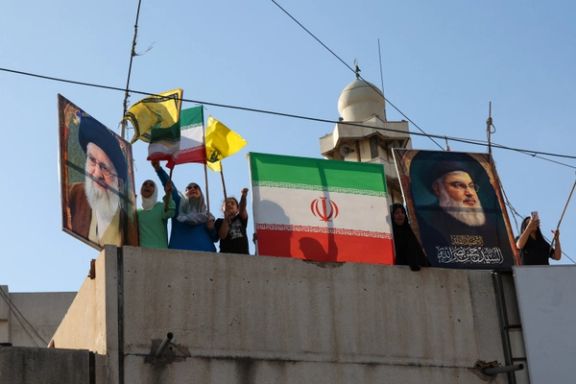Iran-backed Hezbollah rejects calls to disarm as US pushes for action

Hezbollah leader Naim Qassem on Sunday rejected international pressure on the Iran-backed group to surrender its weapons, saying Israeli threats would not force disarmament.

Hezbollah leader Naim Qassem on Sunday rejected international pressure on the Iran-backed group to surrender its weapons, saying Israeli threats would not force disarmament.
“This threat will not make us accept surrender,” Qassem said in a video message for the occasion of Ashura, a major Shia Muslim religious commemoration, amid a fragile ceasefire brokered in November by the US and France.
“The resistance will continue even if the whole world stands against it.”
Washington has called for Hezbollah to disarm completely. Lebanese authorities are expected to deliver a response to US envoy Thomas Barrack's June proposal when he arrives in Beirut on Monday, according to Reuters.
A Lebanese official speaking to AFP on condition of anonymity said authorities have already begun dismantling parts of Hezbollah’s military infrastructure in southern Lebanon, near the Israeli border.
But Qassem, who took over leadership of the Lebanese group following the killing of Hassan Nasrallah in an Israeli airstrike last year, made clear on Sunday that Hezbollah does not intend to relinquish its core weapons or strategic capability.
“The ceasefire was supposed to stop aggression, but violations have continued,” Qassem said. “No one can ask the resistance to drop its arms while the aggression is ongoing.”
Both Hezbollah and Israel continue to cite continuous violations of the ceasefire.
Qassem added that Hezbollah’s defensive posture was essential for Lebanon’s sovereignty. “Without the resistance, Israel would have overrun our villages,” he said, adding that disarmament would be akin to legitimizing occupation.
In a message to US and Israeli officials, he said: “We reject normalization, which is humiliating and degrading. The American-Israeli formula—‘either you surrender or we kill you’—is laughable and outdated.”
Hezbollah has faced mounting pressure in recent months following its war with Israel, which destroyed large parts of Beirut’s southern suburbs and southern Lebanon and left tens of thousands displaced.
The group is also grappling with financial strain and the loss of its long-time Syrian ally after the fall of former president, Bashar al-Assad, in December.
While sources close to Hezbollah told Reuters that internal discussions have taken place about scaling back its armed presence, Qassem’s speech signaled that any compromise would not include full disarmament. He insisted that Hezbollah’s arsenal is a red line.
He also reaffirmed Hezbollah’s alignment with Iran, offering praise to Supreme Leader Ali Khamenei and the Iranian people for their support. “They have stood firm and prevented Israel from achieving its objectives,” he said.
Hezbollah’s position remains at odds with the stance of Lebanon’s government, which has pushed for a monopoly on arms and full implementation of the ceasefire.
Last week, Lebanese Prime Minister Nawaf Salam said that his government is intensifying its efforts to confine weapons solely to state institutions and to extend its authority across the country as part of a broader push to advance the implementation of a ceasefire.